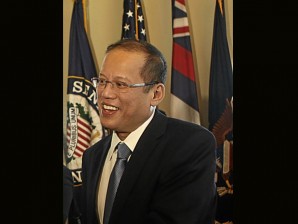The circumstances surrounding the acts of plagiarism committed by Sen. Vicente Sotto III, in the first two installments of his controversial “turno en contra” speech at the Senate last week, are so comical, so ridiculous, they invite disbelief. Did Sotto, the majority leader, really tell ANC’s Karen Davila that he was not obliged to attribute the passage he and his staff lifted almost word for word, comma for misplaced comma, from American blogger Sarah Pope because “blogger lang ’yon [she’s only a blogger]”?
Did his chief of staff, lawyer Hector Villacorta, really leave an extended comment in Pope’s blog that became an instant classic of offensive stupidity phrased in legal gobbledygook? “We are both indebted to the book’s author [Natasha Campbell-McBride] but if you wish that you also be credited with the contents of the book, let this be your affirmation. I can do it and by this message, I am doing it.”
Did Villacorta really tell GMA News, after news broke that the second part of Sotto’s speech also had at least three instances of outright plagiarism, as pointed out by the likes of prizewinning novelist Miguel Syjuco, that one can appropriate anything from the Internet? “Yes, the Internet is a free range of ideas for the world to see. It’s in the free atmosphere.”
And did Sotto really say to the Star (as quoted in the helpful timeline prepared by Filipino Freethinkers, whose blogger Alfredo Melgar was the first to find the passages lifted from Pope) that “Plagiarism, whether you give attribution or not, applies only if you contend that the contents are yours”?
It is tempting to respond to this series of intellectually dishonest rationalizations, this dumbfounding serial comedy, by simply laughing at the ridiculousness of it all. At a fraught moment in a once-in-a-generation legislative debate, one of the key players in the Senate turns out to follow the academic standards of the infamous Wanbol University—you know, that fictional school in “Iskul Bukol” where one of the most popular characters Sotto created, back when he was still doing full-time comedy, held court as king of school hijinks.
This makes us realize that there may be no better way to put Sotto’s acts of plagiarism and his and his staff’s tortured defense in perspective than to quote that satirical blogger, The Professional Heckler. Out of many laugh-out-loud passages, we choose this: “Yet latest online reports reveal Tito Sotto plagiarized the work of not just one BUT four bloggers to be exact… prompting actress Cherie Gil to quip, ‘You’re nothing but a second-rate trying hard copy-paste!’”
To be sure, Sotto is not the only high-profile personality wrestling with issues of intellectual fraud, which is the bottom line of any act of plagiarism. The influential Time writer and CNN host Fareed Zakaria was recently suspended for a month by both news organizations for lifting one passage from the work of Harvard professor and New Yorker writer Jill Lepore. Unlike Sotto, however, Zakaria readily admitted to the mistake. And according to both Time and CNN, they found no other instance of plagiarism in Zakaria’s work.
Sotto, however, remains a piece of work. He is reported to be preparing a privilege speech this week to defend himself against the charges of plagiarism by claiming that what political operatives call a demolition job has been ordered against him. If only he didn’t provide his detractors with the sticks of dynamite himself. As The Professional Heckler’s own tagline reminds us: “The problem with political jokes is they get elected.”
But, important as the issue of plagiarism is, the deeper issue in the Philippines is the fate of the long-awaited Reproductive Health bill. It is here where the real import of Sotto’s cut-and-paste approach to his speeches can be seen. He is ready to use everything—the work of bloggers he does not deign to acknowledge, dubious or at least ambiguous research, the sloppy legal justifications of his staff, even emotional blackmail—to stop the bill from becoming law. That is the real joke, but nobody’s laughing.


